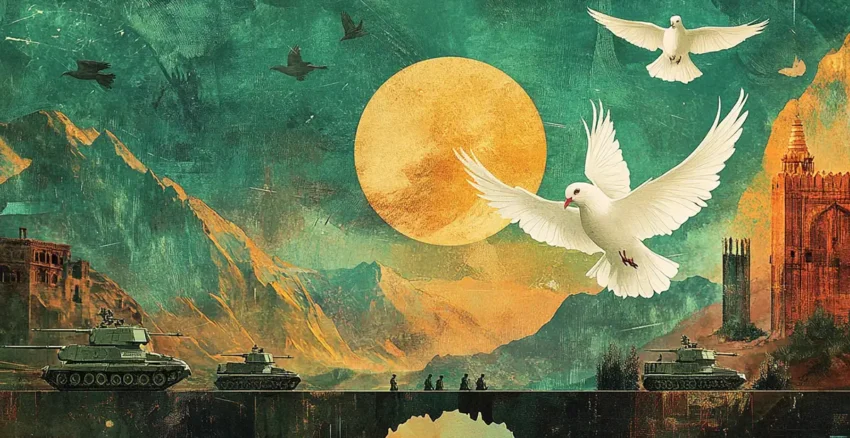India-Pakistan Ceasefire Holds, But Tensions Still High: What You Need to Know

After a brief but intense military confrontation, India and Pakistan have officially agreed to a ceasefire. This development comes as a relief to many, especially residents in border areas. However, the situation remains sensitive, and tensions between the two nations are still high.
What Triggered the Conflict?
The recent conflict started after a terrorist attack in Pahalgam on April 22, which killed 28 people, including Hindu pilgrims. India strongly condemned the attack and blamed Pakistan-based terror outfits. In response, India carried out precise airstrikes on May 7, targeting terrorist camps across the Line of Control (LoC). As expected, Pakistan responded with artillery shelling and air defense alerts, escalating the situation.
How the Ceasefire Was Reached
Amid growing international pressure and fear of a larger war, the United States intervened diplomatically. Top American officials, including Secretary of State Marco Rubio and Vice President JD Vance, reportedly spoke with both New Delhi and Islamabad.
As a result, on May 10, a temporary ceasefire agreement was signed. Indian officials have clarified that this is not a peace deal, but a cooling-off period. “This is a pause, not peace,” said PM Narendra Modi, adding that India will not hesitate to strike again if provoked.
Current Ground Reality: Why Tensions Remain
Even though the ceasefire is holding for now, several incidents have raised concerns:
Drone sightings were reported in Punjab and Jammu.
Minor cross-border firing occurred in Poonch district.
A grenade blast during a rally in Quetta, Pakistan, killed one and injured several.
Explosions in Srinagar created panic, although no casualties were reported.
These events show that while both countries have agreed to stop firing, hostilities and mistrust are far from over.
India’s Stand on Security
India has stepped up its border surveillance and has issued high alerts in Jammu & Kashmir and Punjab. Locals have been advised to avoid border roads after sunset, and internet services in some areas were temporarily restricted to prevent misinformation.
Meanwhile, the Indian Army has confirmed that troops will remain on high alert, and diplomatic talks will continue in the background.
Public Reaction and Global View
Indian citizens, especially those living near the border, have welcomed the ceasefire but are understandably anxious. Many are calling for strict actions against terror outfits and a permanent solution to cross-border terrorism.
Globally, countries like the U.S., Russia, and UAE have urged both sides to maintain peace and focus on dialogue instead of warfare.
As the situation evolves, Indian citizens are advised to stay informed through official channels and remain vigilant.
Inflect.in — Your daily dose of stories that inform, inspire, and ignite curiosity. Follow us for more!
Inspire
Latest Post

AI in Healthcare: Smarter, Faster, and Accessible

Is Co-Sleeping Safe for Babies? Pros, Risks,

Pomegranate Benefits: Why Eating Anar or Drinking

Ma Yansong: Shaping the Future of Architecture

AI in Healthcare: Smarter, Faster, and Accessible

Is Co-Sleeping Safe for Babies? Pros, Risks,

Pomegranate Benefits: Why Eating Anar or Drinking








